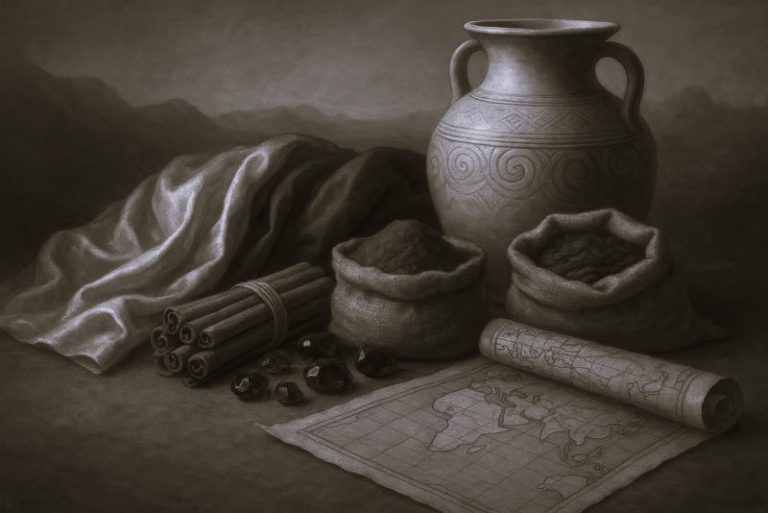
By Maddy V-T
The Aeneid is the major work attributed to the poet Virgil, and is widely considered as a valuable source to people wanting to study the Romans and their literature. Personally, I find it to be mostly a re-interpretation of Homer’s works, without Homer’s ability for creating characters.
However, this post is not about me questioning Virgil´s work, as much as I enjoy doing that. This is an analysis of the Aeneid and the extent to which it can be taken as a commentary on Augustus’ reign. Bearing in mind that it was commissioned by Augustus, you can expect it to be quite favourable towards him. But, Virgil wanted it burned on his death. So, can we draw links between the epic and the reign of Augustus? And how favourable are they?
A clear note of propaganda, a reminder of the official purpose of the epic, can be found in Book Six, when Aeneas accompanies the Sibyl down to the underworld to meet with Anchises. Whilst detailing future Roman heroes, Anchises spends particular time talking of Augustus, saying “Here is the man whose coming you so often hear prophesied, here he is, Augustus Caesar, son of a god, the man who will bring back the golden years of the fields of Latium…”[1]
It is hard to miss the over-complimentary nature of this particular section. However, it can be seen to be a reliably honest comment on Augustus, as not only was he the adopted son of Julius Caesar (who was deified followed his death), but, as Suetonius tells us, circumstances surrounding his conception “suggested that he was the son of Apollo”.[2] Suetonius also tells us that “a public portent warned the Roman people some months before Augustus’ birth that nature was making ready to provide them with a king…”[3] On linking this to the praise given by Anchises in the Aeneid, it can be concluded that Virgil was indeed making a comment on Augustus and his reign, saying that the ‘golden age of man’ had indeed been ushered in by their Caesar.
Throughout the Aeneid, particularly in Book Two detailing the fall of Troy, Aeneas is demonstrated as showing great pietas – loyalty to the gods, and to his family. As depicted in statues of him, he is famed for leaving Troy carrying both his lame father and the Trojan gods, the Penates. This reflects positively on Augustus, also well-known for his pietas. Eck recounts his vow to avenge his adoptive father, Julius Caesar, as something that “all recognized as legitimate since his filial duty (pietas) required it.”[4] This shared trait demonstrates a bond between Aeneas and Augustus, and also suggests that Augustus, thus established as the heir of Aeneas, will bring greatness to Rome as Aeneas did when he founded the Roman people.
Another character trait that ties Aeneas and Augustus together is a seeming lack of desire for power. Parallels drawn between the two have the Trojan people waiting outside their sacked city, “ready to follow me [Aeneas]… to whatever land I should wish to lead them.”[5] Despite not having shown any prior wish to lead his people, when Aeneas is confronted by their desire to follow him, he “yielded”[6] and accepted leadership. This is also a reflection of the events which led Augustus to wield such great power – “the people, however, elected me consul”.[7] The Trojan people, prepared to follow Aeneas with no assurance but their faith in him, are a clear metaphor for the Senate and Roman people as they elected Augustus to power, despite his apparent protestations.
However, it is also in Book Two where one can begin to pick out less positive allusions to the Caesars. Describing the scene following the death of Priam, Virgil writes that “his mighty trunk lay upon the shore, the head hacked from the shoulders.”[8] Only a few lines before, the death of the Trojan king was clearly described as Neoptolemus “raised his sword… and buried it in Priam’s side”.[9] Had there been more than some six lines between these two statements, the discrepancy could be passed off as merely human error, but considering the meticulous nature of Virgil’s writing, it is infinitely more probable that this is a statement about the assassination of Pompey, Julius Caesar’s great opponent.
By using Priam to make this comment, Virgil is likening Pompey to an undeniably great ruler. The implication of this is that he strongly disapproved of the supreme power of first Julius Caesar and now Augustus. As Pompey was the “champion of the Republic”[10], Virgil seems, through the medium of Priam, to be lamenting the death of Roman Republic. Thus establishing such a link, the conclusion may be drawn that Virgil saw Julius Caesar as responsible for the death of the Republic, and that his actions reflect poorly upon Augustus as his son. The importance of the family to the Romans indicates that Augustus would carry the shame of his father’s deeds, even though Caesar was only his adoptive father. In this way, Virgil is certainly making a comment on Augustus, though it is in no way a positive one.
Book Four furthers the criticisms begun in Book Two. In her final madness, Dido calls down a curse upon the Roman people, using blood magic and crying for an “unknown avenger” to “harry the race of Dardanus with fire and sword wherever they may settle”.[11] It is highly likely that the avenger she speaks of is Virgil’s allusion to Hannibal, placing another strong reference to real events. Going back to Book One to reference the impression given of Carthage, Virgil describes the Carthaginians as “drawing up laws and electing magistrates and a senate that they could revere…” in much the way the Roman Republic was structured. Linking both of these allusions and also the way that Carthage was razed to the ground following the Roman conquest, one can see another lamentation for the Republic. Tying this in with Priam’s death, a theme can be seen to be emerging. Twice within the first third of the epic, Virgil alludes to the death or destruction of two things that he ties closely to the Republic. Consequently, it can be seen that he is indeed commenting on the way that Augustus has so skilfully manipulated the Senate into giving away their liberty.
Such negative implications can also be found in Book Six, not many lines beyond the propagandist praise that Anchises heaps upon Augustus. Virgil uses Aeneas and the Sibyl’s exit from the underworld to make a covertly strong damnation of Augustus.
There are two gates of sleep: one is called the Gate of Horn and it is an easy exit for true shades, the other is made all in gleaming white ivory, but through it the powers of the underworld send false dreams up towards the heavens. There on that night did Anchises walk with his son and with the Sibyl and spoke such words to them as he sent them on their journey through the Gate of Ivory.[12]
Having established such strong links between Aeneas and Augustus, as well as placing this so soon after enumerating upon the Roman kings and Emperors, it is far from positive that Virgil has the hero return to the world of the living through the Gate of Ivory – where false dreams are sent. The implication that the dictators and lone rulers of Rome are false is clear and becomes particularly strong when one considers it with the earlier links Virgil makes to the ending of the Republic. There is a strong suggestion that Augustus himself is a ‘false dream’ – he brought himself to power through manipulation and cunning, usurping the power of the Senate by persuading them to hand it to him. Though he described himself a ‘first amongst equals’, it is clear that Virgil simply sees him as a usurper, akin to the “Tarquin kings”.[13]
The establishment of Aeneas as a surrogate for Augustus brings the suggestion that Virgil is using Anchises as a proxy for himself. This is wholly conceivable, particularly when one looks at the way that Anchises takes them to the Gate of Ivory, thus placing the belief that Augustus is a false hope for the Empire. By using Anchises as a mouthpiece, Virgil can also place statements that will clash with later events in the tale. The most telling example of this is when Anchises warns Aeneas to “be the first to show clemency”.[14] This suggests Virgil believed that violence was not the immediate solution and this suggestion is supported in the conclusion to Book Twelve, with Turnus’ death.
Turnus is established as a sympathetic character, through his nobility and initial refusal to succumb to the temptation of war. It is only the intervention of Allecto, at Juno’s behest, that leads him to launch his attack upon the Trojans. The portrayal of him as a sympathetic character is continued at the conclusion, when he begs Aeneas, as a suppliant, to spare his life. He is unarmed at this point, but Aeneas kills him regardless. The final line of the Aeneid is “The limbs of Turnus were dissolved in cold and his life left him with a groan, fleeing in anger down to the shades.”[15] This does not conclude the epic on a positive note, with Aeneas disregarding the instruction Anchises gave him to show mercy and acting in a manner more akin to that of a barbarian than that expected of an honourable Roman. Again bearing in mind Aeneas’ links to Augustus, this strongly implies that Augustus’ reign was achieved through un-Roman means and that he destroyed something worthy to gain his prize.
The conflict over Lavinia can easily be seen as a struggle over the control of the Roman Empire, with Aeneas representing Augustus and Turnus representing the Senate. The implication given with this link between the Senate and Turnus is that, much like Allecto set some insanity aflame in Turnus, similarly a madness was caused among the Senate. The conclusion this would lead to is that Augustus claimed his power through unethical means, much as Aeneas claimed Lavinia through the unjust murder of Turnus.
To conclude, the Aeneid is to a great extent a commentary upon the reign of Augustus, in particular his coming to power. However, on close analysis of the text it can be seen that there is very little positive in the statements that Virgil makes about Augustus and his reign. Through three different comparisons that have been picked out, he is implied to have destroyed the Republic, in much the same way Priam, Carthage and Turnus were destroyed. There is also the strong implication that Augustus would not bring all that he promised through the allusion of the Gate of Ivory and the false dreams that pass through it. Having made such strongly negative links, it is very difficult to suggest that Virgil was making a fair commentary upon Augustus, solely that he used the Aeneid as a way to establish his views without the risks that might come with voicing them aloud.
Notes
- Virgil, The Aeneid, Book Six, l. 791.
- Suetonius, The Twelve Caesars, trans. Graves, R. (London, 2007), 95
- Ibid.
- Werner Eck, The Age of Augustus (Oxford, 2005), 11.
- Virgil, The Aeneid, Book Two, l. 800.
- Ibid, l. 803.
- Sarolta A. Takács (trans.), The Res Gestae of Augustus.
- Op cit., Book Two, l. 557.
- Ibid., Book Two, l. 551.
- Colin Wells, The Roman Empire (Hammersmith, 1992), 51.
- Virgil, The Aeneid, Book Four, l. 624.
- Virgil, The Aeneid, Book Six, ll. 892-3.
- Ibid., l. 819.
- Ibid., l. 836.
- Ibid., Book Twelve, l. 952.
Originally published by W.U. History, 03.02.2011, under the terms of a Creative Commons Reconocimiento-NoComercial-SinObraDerivada 3.0 Unported license.







